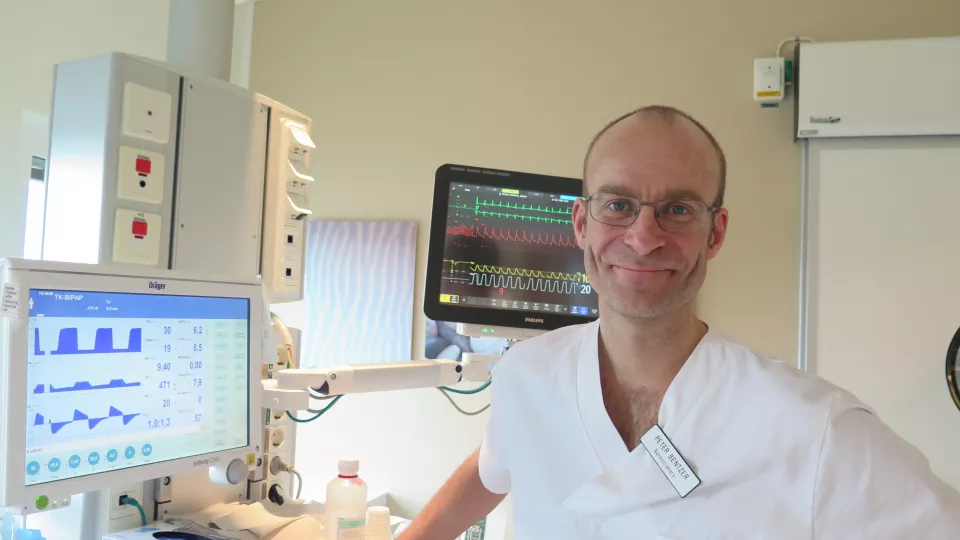You are being awarded the prize for the best possible care with the least possible environmental impact – what was the key to your success?
– As doctors, we have the opportunity to identify issues and interventions where there’s little evidence of any clinical effect, but a clear difference in environmental impact. If we can provide as good or even better care while simultaneously minimising the environmental and climate impact, then we need to do that. If we fail to commit to this, we risk losing out on changes that lead to increased sustainability.
Together with Anna Lindén-Søndersø and Niklas Nielsen, you’ve mapped the use of anaesthetic gases. Tell us about it!
– Virtually all anaesthetic gases are potent greenhouse gases. In 2018, we investigated how much of various gases were consumed in Sweden, in both human and veterinary medicine. We calculated what would happen if we stopped using the gases with the greatest environmental impact, and we also argued that there are no convincing clinical effect differences between the various gases we compared.
Among other things, the study conducted by Peter Bentzer and his colleagues showed that in 2017 the Swedish healthcare system’s anaesthetic gas emissions corresponded to the climate effect of 5,000 tonnes of carbon dioxide. But by replacing one of the most potent greenhouse gases (desflurane) with a less potent one (sevoflurane), the climate effect of halogenated anaesthetic gases in Swedish healthcare can be reduced by 73 per cent.
– We don’t think that there are sufficient reasons to continue using desflurane, the climate impact of which is 25 times greater than sevoflurane, the inhalation gas we currently use.
There are several other areas to consider: disposable items, for example.
– When we insert a central venous catheter in a patient, a ready-made package is used that contains everything you need. In the past, we used a package that contained disposable metal scissors and disposable needle guides. That’s something many people at the clinic reacted to, and something we changed, says Peter Bentzer.
One change Peter Bentzer wants to make, but which is difficult to implement, is to transition from sterile disposable aprons to reusable textiles during surgery.
– This is an issue that we don’t control; Region Skåne doesn’t have a laundry that can sterile-wash textiles. In the past, there were cotton coats that were sterile-washed. Today, modern, recyclable textiles are used by certain units within Västra Götaland, among other places. That would provide great benefits from an environmental and climate perspective.
Calculating things like this is a science in itself, says Peter Bentzer:
– We work with a form of analysis known as life-cycle assessment, where we estimate climate and environmental effects all the way from raw material extraction, through manufacturing, consumption, transport and up to the destruction of various products. What is added here is that we search in a structured way for literature that analyses any clinical differences between the different alternatives that we compare. And we also do an economic analysis.
The group has recently received funding for a full-time doctoral studentship from the Agenda 2030 Graduate School, a university-wide project that aims to generate knowledge about sustainability issues. A clinical doctoral student will also work with the research issues.
The Sustainability Prize has been awarded since 2020 and honours physicians who promote and work with the sustainability of healthcare and who have thereby become role models for their colleagues, employees and students. Peter Bentzer notes that interest in the issues relating to the environment and sustainability in healthcare is growing:
– I hope that our work can inspire more of my colleagues to work to reduce our climate impact.
